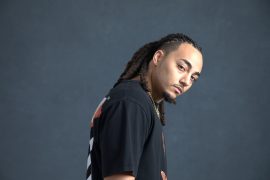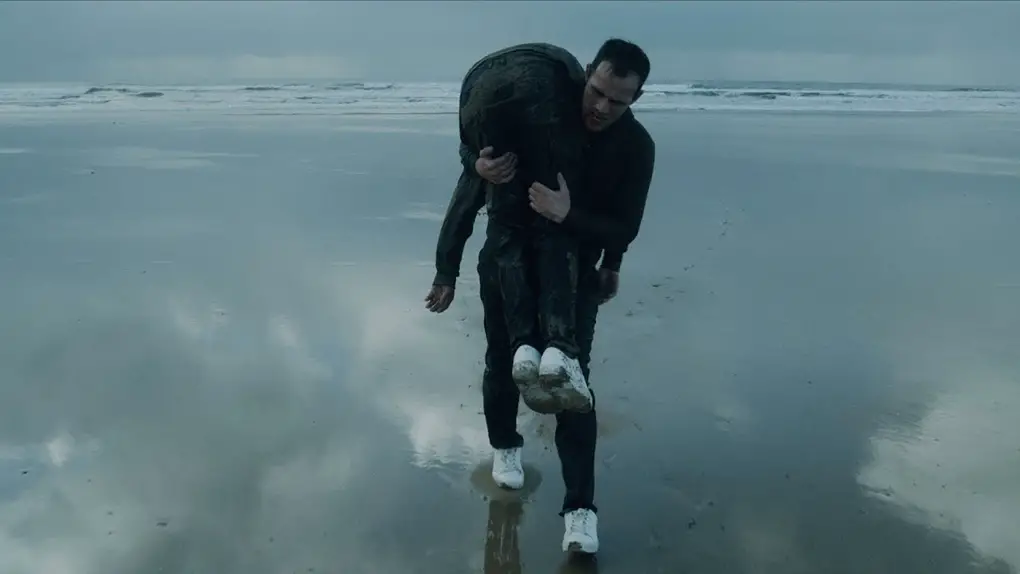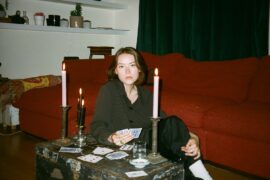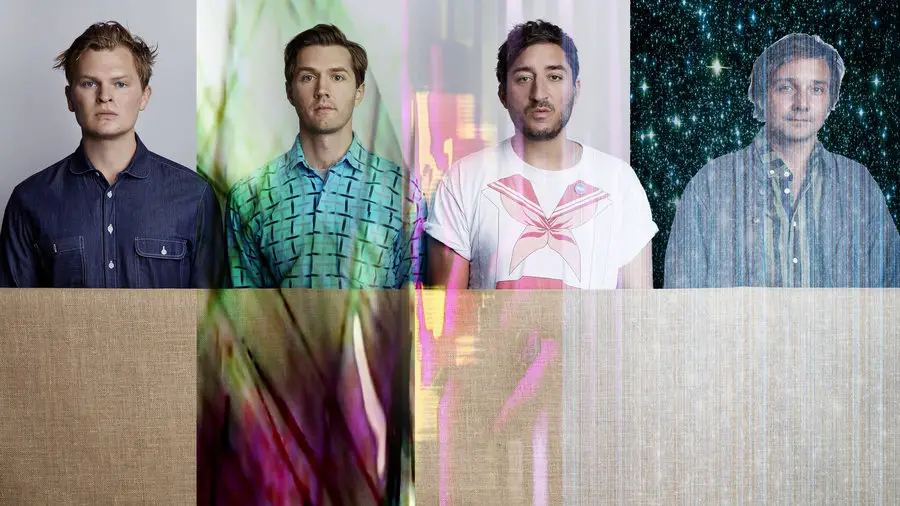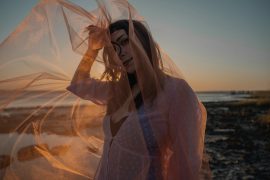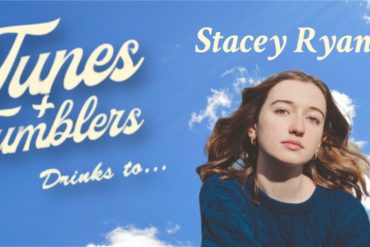The Lone Bellow bring country gospel flair, close harmonies, and an infectious energy to WXPN in Philadelphia as Atwood Magazine sits down with the trio before the gig.
Stream: “Honey” – The Lone Bellow
It’s feeling like the first vestiges of fall in Philadelphia.
I return to the familiar grounds of WXPN’s World Cafe Live, where I’d attended about a dozen ‘Free at Noon’ performances between winter and summer of 2023. Across from a prominent mural and the college radio studio’s control room, the Lone Bellow are rehearsing on the main stage. In their thirteenth year together, the group has embarked on a “fan-selected” tour where an audience vote is cast to determine the setlist. They are on hallowed ground – among the artists who have graced the stage are Adele, Hozier, Steve Martin, and Bob Weir, alongside hundreds of other established and up-and-coming artists in its twenty-year history.
Forged in Brooklyn with a Nashville flair, the Lone Bellow emerged from frontman Zach Williams processing his wife’s temporary paralysis in a horseback riding incident. Comprised of a core trio including multi-instrumentalists and vocalists Brian Elmquist and Kanene Donehey Pipkin, the band tonight is rounded out by drummer Jon Truman and Pipkin’s husband Jason on keys. Their most recent album, Love Songs for Losers, was self-produced and recorded at the former ranch of Roy Orbison, “next to Johnny Cash’s burnt-down house.” The band balance a kinetic stage energy and infectious banter with a gospel-esque sincerity.
Williams, Elmquist, and Donehey Pipkin sat down with Atwood Magazine an hour and a half before they were slated to take the stage.
In casual wear, they’ve just warmed up with razor-sharp three part harmonies and brace themselves for a crowd they say will be, quote, ‘boombastic.’ But they’re ready.
— —
:: connect with The Lone Bellow here ::
— —
A CONVERSATION WITH THE LONE BELLOW
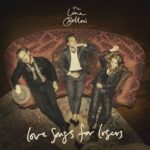
This interview was originally conducted on October 5, 2024 at WXPN’s World Cafe Live in Philadelphia and is edited slightly for clarity.
Atwood Magazine: So I think it's really interesting that you guys are doing the fan-voted setlist as you sort of move around different regions. Are you noticing a difference in what tracks people are picking and is there a ‘Philly vibe’ to the songs that you're doing tonight, or do there tend to be universal crowd favorites?
Zach Williams: Philly definitely has a, like, a more ‘excited’ setlist, the ones that they picked are, like, pretty big and ‘boombastic.’ So I’m pretty excited about that. But yeah, they’re different in different towns, though, we played this little town in Kentucky a couple weeks ago, and it was like they wanted maybe more of the intimate songs.
But we’ve been opening it up each night and just letting people yell at us what they want to hear. And that I’m excited for, what that’s gonna feel [like each] time.
I read once that David Bowie did something similar, but I think was a radio contest where someone could vote on what they wanted to hear. And someone (editor’s note: it was the New Music Express, during Bowie’s 1990 Sound and Vision Tour. The effort led to Bowie scrapping the vote system entirely) put together a conspiracy, and they voted for a song called ‘The Laughing Gnome,’ which is not a song you ever would have done. It's a weirdo one from the ‘60s. Is there a song that would be so ‘out there’ that it would give you pause, and you'd say, “I don't know if we can do that?”
Zach: Like from our own catalog?
Yeah, or if someone called out a cover that might push the bounds?
Zach: I’ll start with our own catalog. Oh,man, I feel like people often ask us to do songs that we’re like, no, don’t remember, yeah, mostly because we can’t play them.
Brian Elmquist: Somebody asked us somewhere over the rainbow, which is kind of kind of interesting.
Zach: If somebody asked for “Goodness Gracious,” I don’t know if we’d be able to just do it. That’s one from our catalog. But, yeah, but then cover song wise, we only know like, four cover songs total as a band, so we’d be in a tight spot. But if they don’t mind it being bad, we could try. Yeah.
Do you think that person wanted the like Judy Garland over the rainbow, or the ukulele –
Brian: Probably Judy Garland. I do love the story behind the ukulele guy [Iz Kamakawiwo’ole], though.
Oh yeah, it was like, after everything in the studio shut down, and then he just had the one take?
Zach: Yeah he just felt like [spontaneous], sometimes that’s the best music.
So it's hard to describe a sonic palette when you're writing about music, it's like, “oh, sort of ‘folk- tinged’, etc. But I was listening to the most recent album Love Songs For Losers that you guys did, and then I noticed some, for lack of a better word. ‘Classic’ 50s, like songwriting stuff. Then I read that you recorded at Roy Orbison’s house. So are there qualities that you find in songwriting that defy time and genre, or is it, your songwriting very rooted to like where you're writing and the era that you're writing in, and the stage of your life that you’re writing in?
Kanene Donehey Pipkin: I think for the record itself, we were talking about love songs in general, and for us, I think being in a space is like, is like. It really becomes like an instrument in our music every space we use, like Rockwood, a music venue in New York, and we’ve been in a barn and other churches and stuff. So I think being in Roy Orbison’s old house probably snuck in, for sure. But that kind of music’s in our bones, you know, like that old 54% Frankie Valli all that stuff. I mean, we literally ripped Frankie Valli on this one. You can’t tell, but, like, it was a big inspiration for one of the songs on the record, but on uniform. But yeah, I think it’s both of them. You know what? I mean, I think we’re writing for a certain thing, and then there’s a place we’re doing that, and it kind of ‘happens.’
There's obviously a levity in your lyrics, but then when you're doing a tribute of a more serious nature “(Victory Garden,” a tribute to the victims of the Covenant School shooting), there's a serious tone that has to be broached. How do you strike that balance in your performance and in the writing?
Zach: Yeah, I mean, I think the balance that…you lend yourself to it like at a live show, the balance will naturally come if you trust the audience and you’re not trying to, like, make a fucking statement. You’re just like, “here’s this thing we wrote,” and they’ll meet you there, and it would be like this kind of safe place for both parties.
For “Victory Garden” in particular, our goal was to try to write something down that fit the description of what we were hearing from the actual parents who lost a child in the shooting. And I think, like the word ‘meek’ popped up a lot, just like a control power and like kindness and gentleness, but also frustration and fury. So trying to navigate that, in one sense, it could have been really, really difficult, like, “oh my gosh,” but it actually came so natural while we were writing it, I think especially because the four people writing it together were all parents in Nashville. So it was us, and then this guy that goes by Mickey Echo and, yeah, I don’t know if that makes sense.
No, it absolutely makes sense.
For some of the shows on this tour you're playing as a trio, and other ones it's augmented as a full band. Do you have a preference, and what's the difference when you're putting together those setlists?
Brian: Full band across the board, right? Yeah, we’d rather jam out with our bros, but it’s nice to have all of the parts. I think they also repurpose, right? I think everything makes everything else better, like puts everything into the right setting so they can all sparkle. And I think if you’re the kind of person who likes a more intimate storytelling type of night, or has an aversion to loud sounds, the acoustic furs, but you also hear more of like the nuance and the singing the acoustic tours, but the full band tours are more like the albums, and there’s a lot more just power and energy from the instruments.
On a coincidental note, I was listening to The Police the other night. That’s three people, and it was just wild thinking about all the layered guitar parts and some of the drum stuff that's going on there. Even with (just) a trio, that those songs are so, so layered. In that harmony sort of vein, do you each have a favorite ‘harmony band’?
Brian: Boyz II Men, right? Easy!
Good answer for Philly!
Zach: I didn’t even think about that, I would say Fleetwood Mac.
Brian: I feel like we’re always not as good as them, really.
Zach: Disagree!
Kanene: Temptations, The Beatles, En Vogue, but Boys to Men have probably also got to be the top. I’d say the Beatles and Boyz II Men are probably my two top musical ends of the spectrum.
You know, there's a Boyz II Men Boulevard in Philadelphia! I forget exactly where it is.
Zach: We have to go there. Yes, it’s very important to us.
Yeah, I can't remember, but it's near Center City. I can't remember exactly where that is (editor’s note: between Broad and Christian St. in South Philadelphia).
So as you’ve passed the 10 year mark together, and you're looking at 15 years, how is your relationship with the earlier songs changing, and what's a benchmark that you're looking to the future for, that you'd like to reach with new material and new performances? What do you see in the future, there?
Zach: Yeah. I mean, Jeff Tweedy said it so well, he’s got this song [“What Light”]. It’s like [sings] “if you feel like singing a song and others to sing along, just saying, what do you feel? Don’t let anyone say it’s wrong.” He talks about painting a picture, and he talks about second guessing yourself, and then the last verse is like, “when the whole world’s singing your song and all your paintings have been hung, just sing what you feel it’s everyone’s from now on.” And that’s how I feel about the first record. Those songs came from a place of great sadness, and there was joy in there too, but it was just really, really heavy. So when we go back and we sing these songs live now, I can look out to the people in the crowd and I’m like, “Oh, this is ‘you’re going through something.’” This is yours now. And we’re just a part of this moment of hospitality to just carry whatever you’re dealing with together. Let’s go. Let’s lift it up. And then, I mean, [as for] the future, I’ll let these guys answer.
Brian: I mean, I’m really, really excited about it. We’re on our “by request tour,” and our last single, “Honey,” is the most requested song. So for a band that’s been out for 13 years, and the song that we produced ourselves is the song everybody loves and everybody asked for more than any other song. That’s a really cool place to be. Now, I don’t know about growth and all that, because you can’t look in the future like that, but if we can make music and stay true to ourselves and just try to have fun and take care of each other, I feel like it’s going to be okay.
Zach: I’m out of the ‘projection business.’ That’s all we did first 10 years. It’s more about right now, just making the best thing we know how to in the morning, I think. I also feel like we have a role of, like, helping the people that are coming up, of course, behind us. I would love for us to be a safe place in the music community, for people to be able to come to [us] and we, I don’t know, just have discussion about, “what’s it like having a baby out on the road? What’s it like being in a band with your best friends? But there’s still being conflict and frustration?” And I’m as excited about that part of our career as I am [about] the next record that we’re going to release. I just there’s a lot of beauty [there].
Kenene: Ready to enter your ‘guru phase.’
Yeah, the ‘George Harrison at the end’ phase, where everyone's arguing, and he’s just stepping back from it all.
Zach: Yeah.
Thank you so much!
Kenene: Great. And this [drawing] is beautiful. Yeah, this is on Roy Orbison’s dock.
I'd love to get a picture of all of us with it!
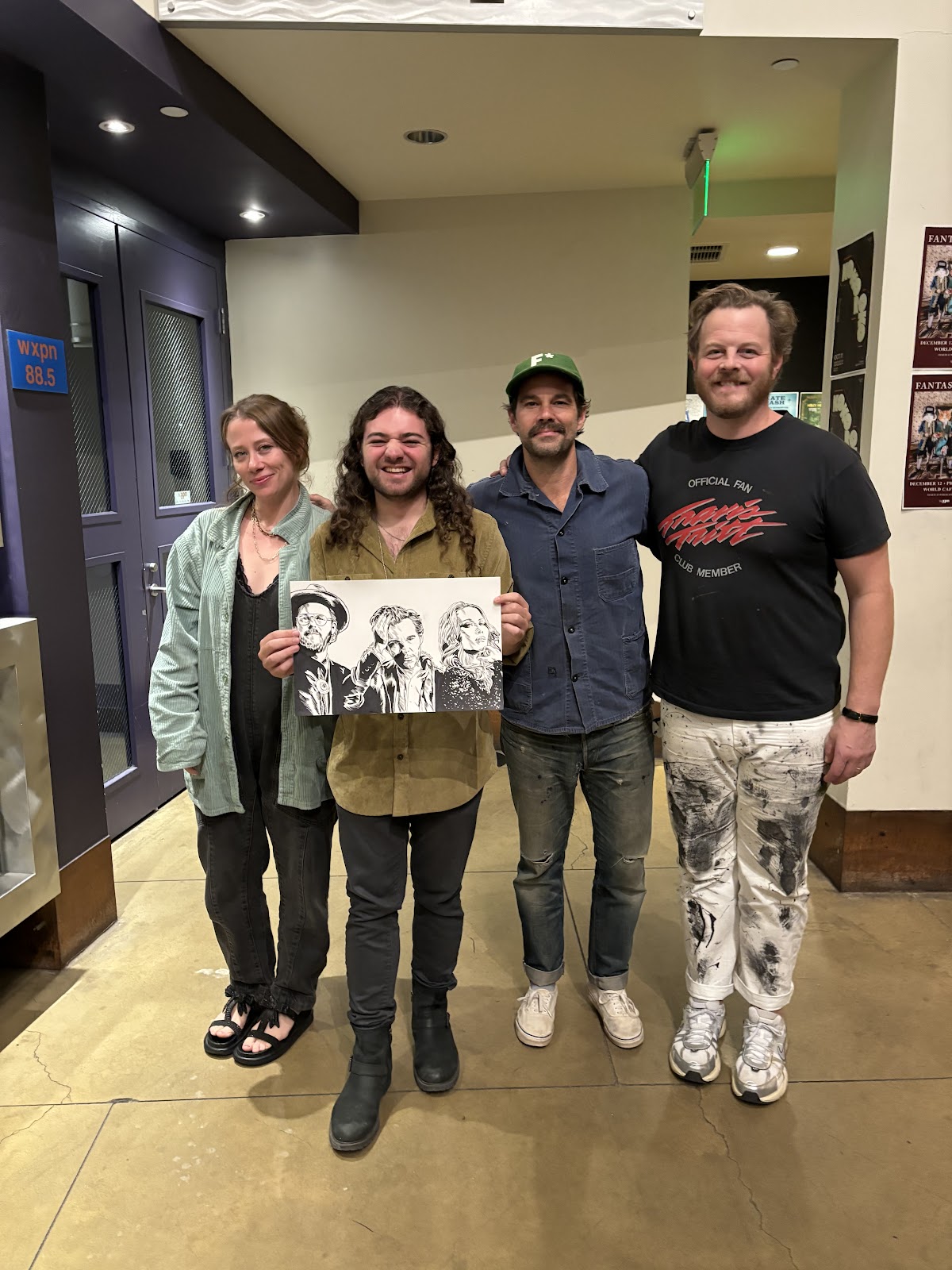
* * *
Seizing the one-hour gap between doors and the opening act, I sate my morbid curiosity and grab the fabled Wawa pizza. (Pretty okay!)
The XPN staffers humor my programming questions and, several promotional pins and stickers later, we file into the show. A large standing room with warm lighting, the venue seats (or stands) about 600 and hosts a full bar.
Philadelphia’s own Brittany Ann Tranbaugh opens the show with a string of playful, confessional acoustic tunes. Her disarming candor and songs about a “long distance situationship” and misadventures in love are a delight. Tranbaugh centers her queerness and positivity in her songwriting and onstage messaging. Highlights come in the form of a dedication to “all the niche hotties – and there’s a lot in Philly!” and a preemptive mention of “a Beyoncé reference at the emotional climax of this song, you can’t miss it!” She recalls attending World Cafe Live gigs at her freshman year at Temple and shouts out the 20th Anniversary of the venue. A gem of the set is a dedication to her niece, “Song for Caroline,” which moves a swaying crowd (she is teased by Caroline that she’ll have to one-up herself with a new song for her youngest niece). Tranbaugh was awarded the top prize of the John Lennon songwriting contest in 2021; there is no doubt as to why and she is an artist to watch.
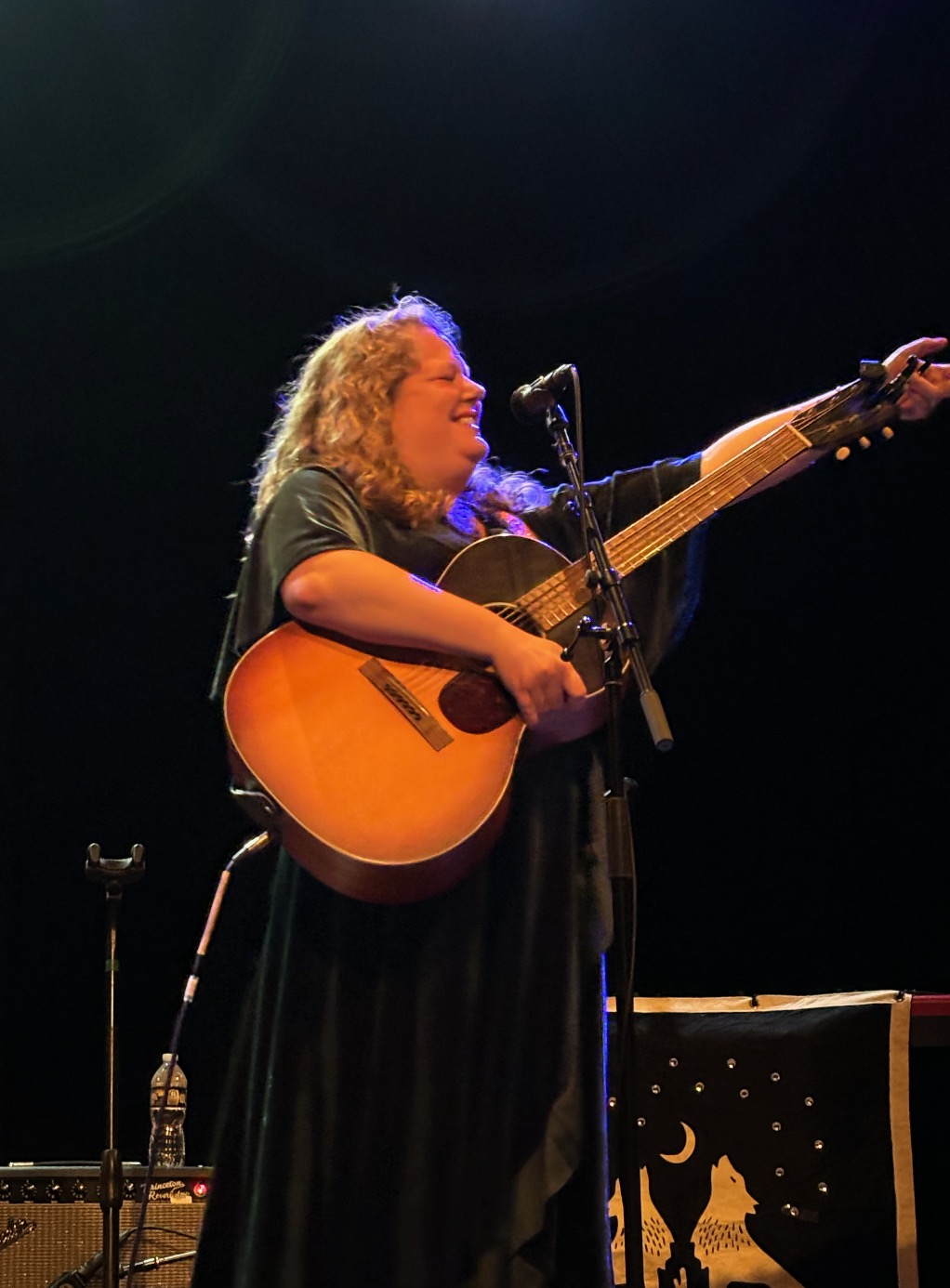
Between sets, the most fervent Lone Bellow fans furtively snap setlist photos at the base of the stage. They barter with each other for an airdrop; others prefer to be surprised. Their gig begins with an acapella vocal, a tight and crisp wall of harmony vocals to a packed floor. At the outset, they take no breaks between songs and propel the audience to a frenzy. Everyone on the floor knows these songs verbatim, and the rapt crowd recreates every lyric and vocal yelp as recorded.
The room is enveloped in a gospel heat as Williams shakes his prayer hands and bellows “yeah, y’all feel it!”
Truman’s drum pulse is steady and propulsive, and Williams seems overtaken by an almost manic performance energy. He requests “the loudest scream in the crowd” and a roar erupts on command.
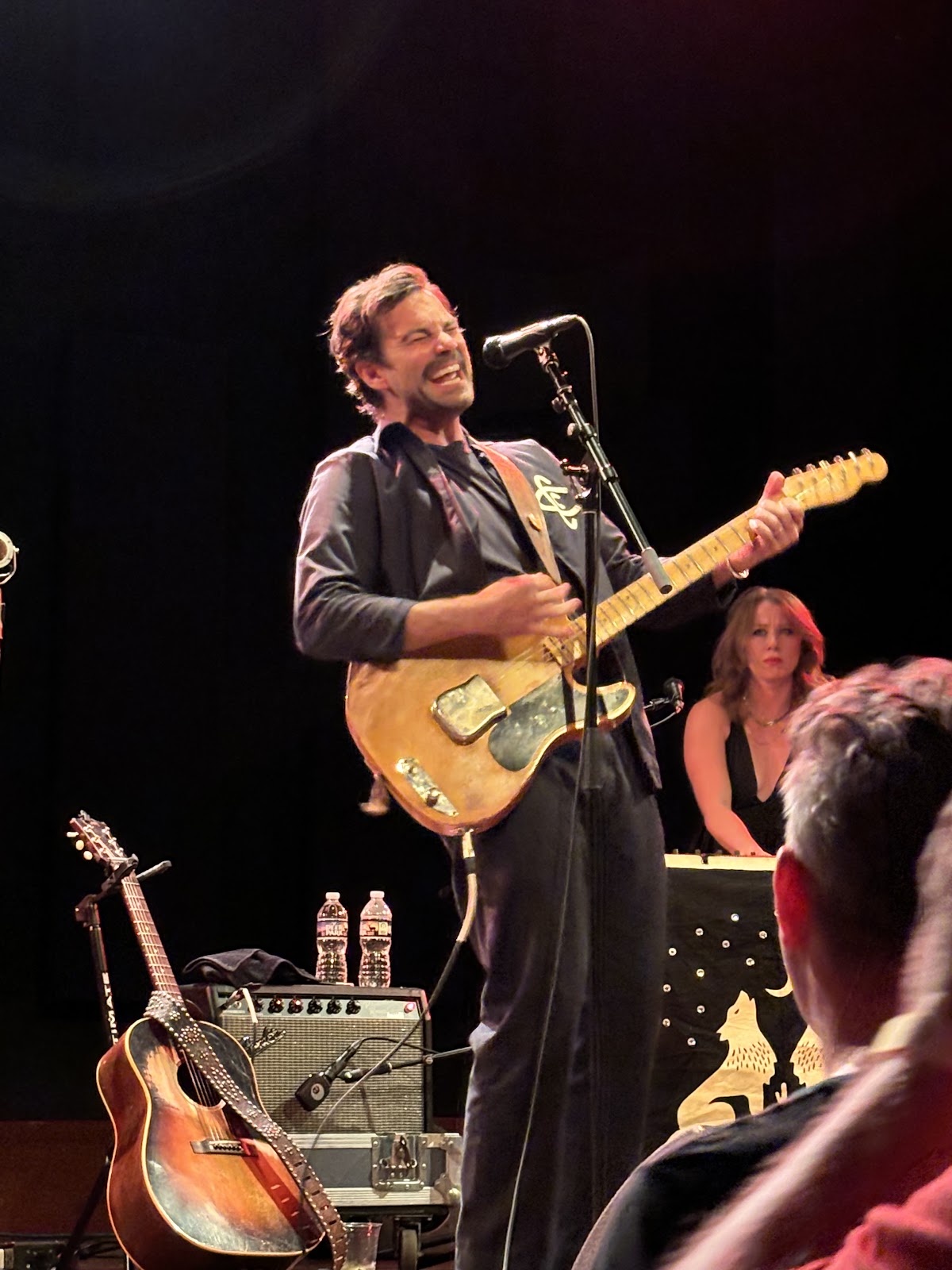
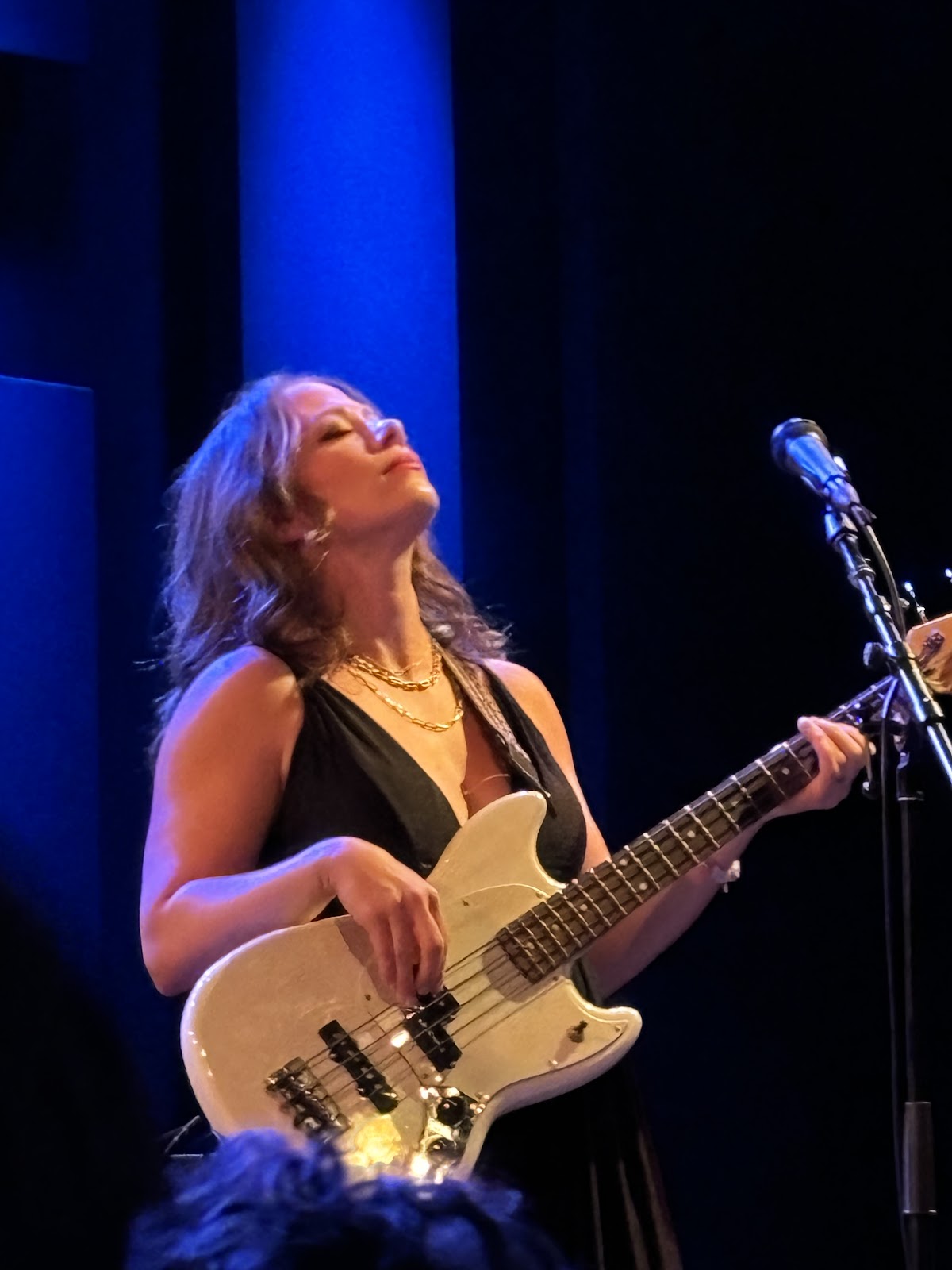
Donehey Pipkin alternates between bass and mandolin duties, and the organ swirls of “Silence is Golden” offer a breather from some of the earlier intensity in the set. When Williams mistakenly pulls the mic from its stand and holds it aloft freehand, Elmquist jokes, “It’s the redneck Freddie Mercury!” Williams gamely quips, “totally planned!”
The band reminisces on an earlier appearance at World Cafe Live, where “Green Eyes and A Heart of Gold” was aired in its completion for the first time – “an ab workout,” as Zach recalls.
The auxiliary musicians leave the trio for a miniature acoustic set around a 1940s microphone. Subsequent to a sweet rendition of “Two Sides of Lonely,” someone down the front hollers “that was amazing!” Zach lobs back with “thank you! Do you guys have any requests?” Then, as if in reply to our earlier discussion, someone cries “Boyz II Men!!” Some furtive murmuring follows and Elmquist takes charge.
He leads a rendition of “End of The Road” with the disclaimer, “I hope this isn’t too disappointing!” It isn’t – the group know the harmonies like the back of their hands and chorally direct the crowd on the “ooohs” after “it’s un-nat-ur-al.” It’s a sweet and purely organic moment that highlights the care and regional specificity the Lone Bellow take in the crafting of their setlists.
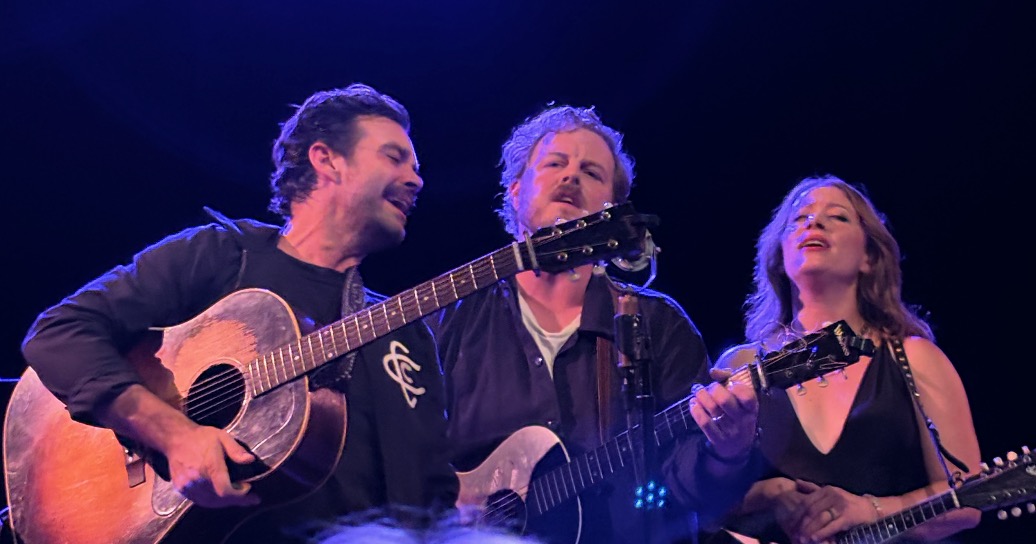
I watch in real time as the trio demonstrate their trust in the audience to ebb and flow with them into mellower territory. “Call to War” showcased a pared down arrangement with an audience-led chorus of “mmmms” as the guitar is stripped back. The bluesy “Cost of Living,” a Pipkin vocal showcase and standout in the set, is dedicated “to inflation – just the concept.” Lovers sway to songs they know by heart.
“Honey,” the top-voted song of the night, is received rapturously. The evening reaches its emotional climax as every voice in the crowd chants in unison, over and over:
“A tree I’ll grow to let you know
My love is older than my soul”
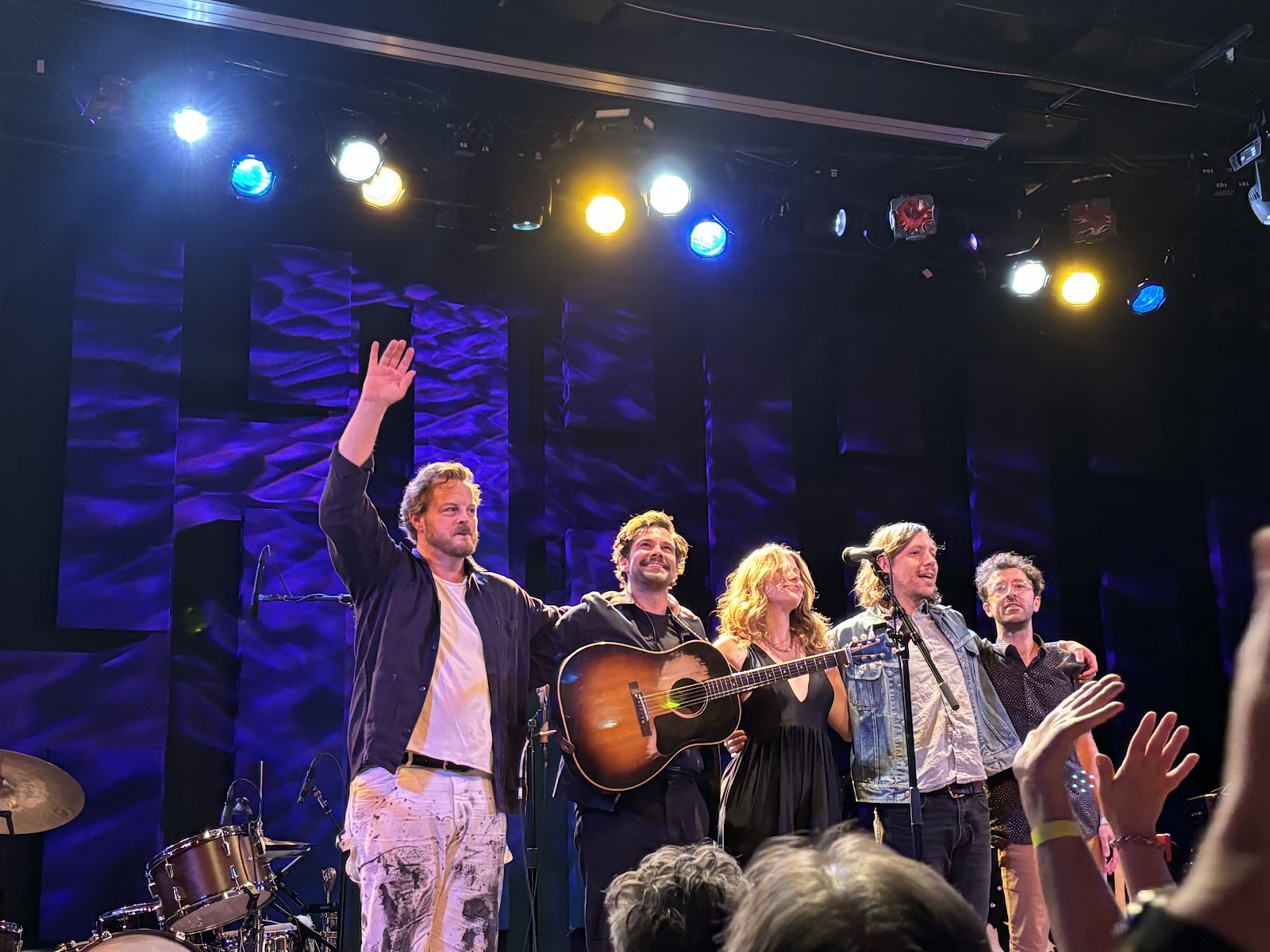
The Lone Bellow take their bows and thank the crowd for giving them “the best job in the universe.”
They vanish into the ether, presumably to Boyz II Men Boulevard. As the crowd parts into a slightly chilly Philly night, the buzz is palpable and chatter of favorite songs and memories are passed like love notes. For Philadelphia, at least, it’s The End of The Road.
— —
:: connect with The Lone Bellow here ::
— —
— — — —

Connect to The Lone Bellow on
Facebook, Twitter, TikTok, Instagram
Discover new music on Atwood Magazine
© Eric Ryan Anderson art by Aidan Moyer
:: Stream The Lone Bellow ::

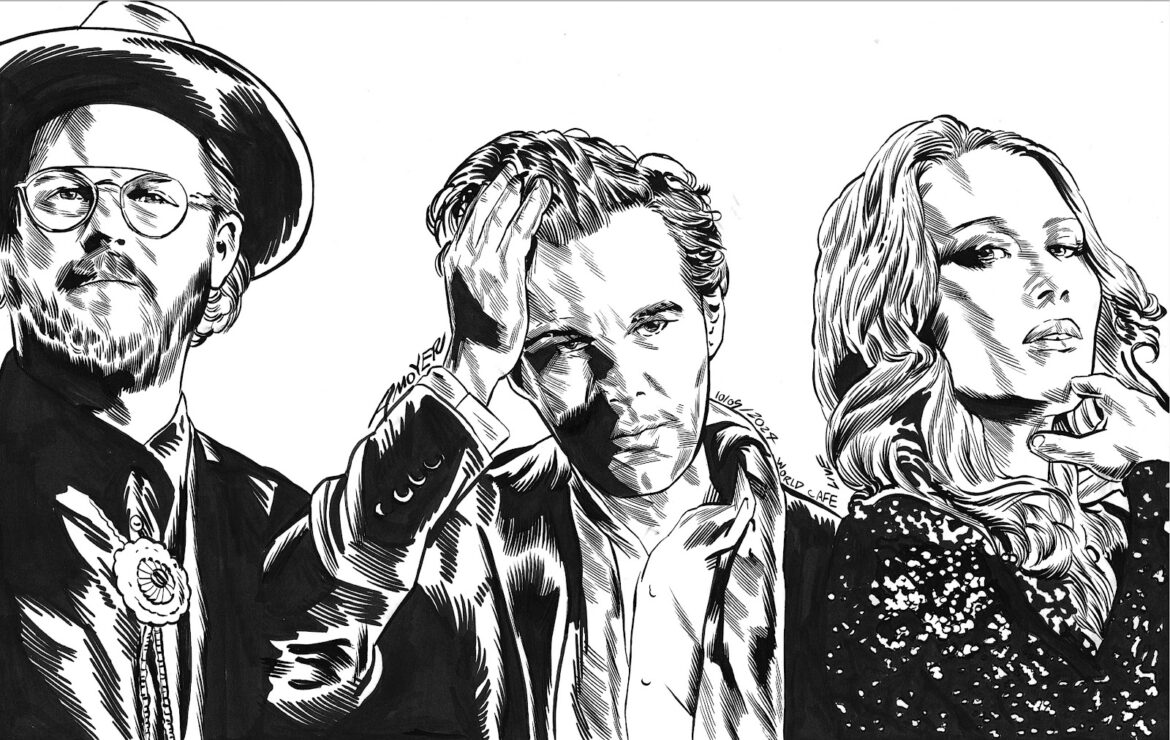
 © Eric Ryan Anderson
art by Aidan Moyer
© Eric Ryan Anderson
art by Aidan Moyer